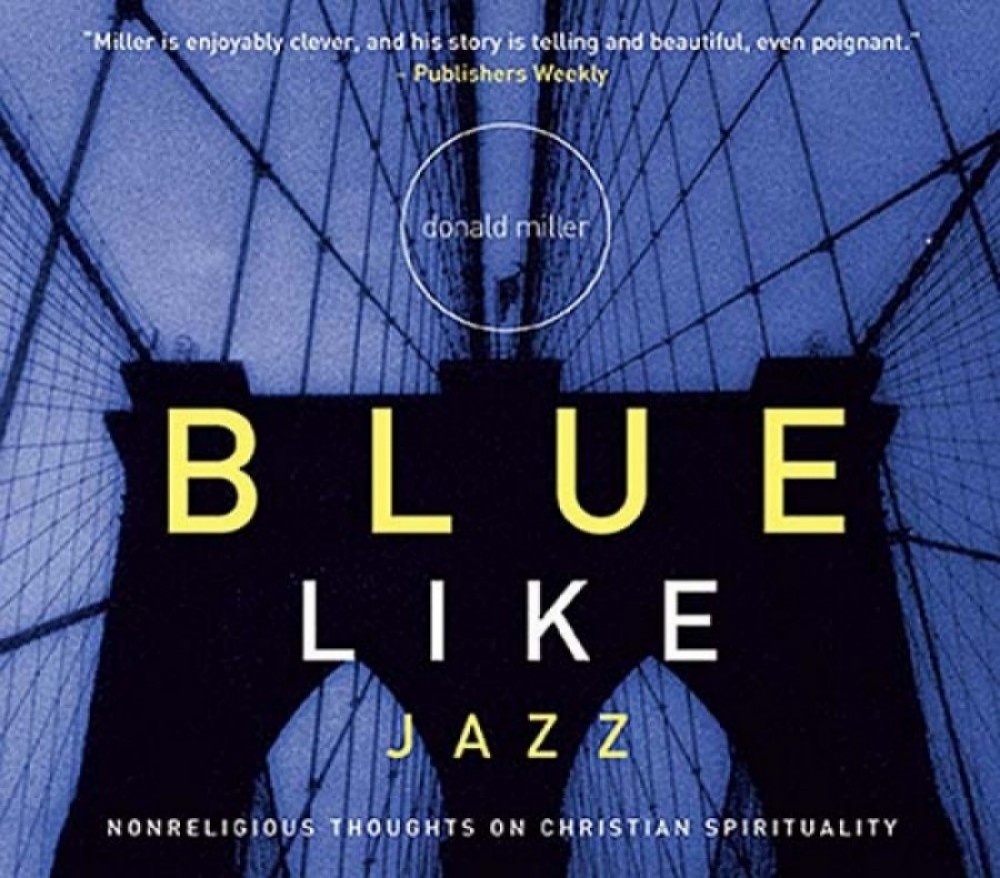Carpe Librum: Don Miller’s ‘Blue Like Jazz’
 “The most difficult lie I ever contended with is this: Life is not a story about me.”
“The most difficult lie I ever contended with is this: Life is not a story about me.”
Don Miller attends the most godless college in America.
He kind of likes it.
It gives him the chance to escape his “Bible Belt” upbringing and ask his questions on his own terms, to his own god. But he ends up questioning his own questions and finding even better ones.
“Blue Like Jazz” is a series of reflections, which serve as more of a memoir than an autobiography of Miller’s search for God and a better understanding of Christianity.
It’s an older book, written in 2003, but it’s relevant again because it was just released as an independent film, directed by Steve Taylor and co-written with Miller.
Like all of Miller’s works, “Blue Like Jazz” is written informally enough to be a conversation, but beautifully enough to be a poem.
His stories give insight into his mind and motivations, which allows the reader to see how his experiences, encounters and friendships with people begin to change him.
Of these, his friendship with Penny is the most significant, but few parts of the book compare to the confessional scene.
Reed College was godless. It could have put Nietzsche to shame, and its party scene rivaled that of the hedonists in ancient Greece.
It is in the midst of this scene that Miller claims the story of “Blue Like Jazz” really began:
Reed was a tough place to be a Christian, but there was something of a remnant nonetheless. It was a small group of students really devoted to their faith, and they decided they needed to do something big. But what could a couple of Christians do in the midst of partying atheists and agnostics?
They decided to build a confessional, but not the kind that normally comes to mind.
In this booth, the Christians spoke. The ones saved by grace admitted their shortcomings to the condemned, and the result was remarkable. They apologized for the Crusades and the Inquisition and other events lauded as Christian acts that were really not. They confessed their own shortcomings: how they did not feed the poor, care for the sick, control their anger, or love their neighbor as Christ told them.
It changed some lives on both sides of the screen. It is a powerful scene, and if nothing else in the book was worth reading, this scene is the exception; although I am of the opinion that it is all worth it.
“Blue Like Jazz” is a different take on the Christian life, and it makes some good points. Just make sure that it is read with a grain of the salt of the earth (and the Bible), because not all Miller’s thoughts should be taken as Gospel.

Good review of a book that’s on my list. I like the way you started this article.